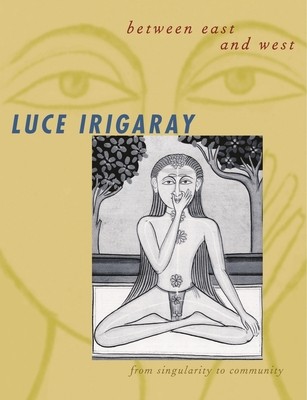
- We will send in 10–14 business days.
- Author: Luce Irigaray
- Publisher: Columbia University Press
- ISBN-10: 0231119348
- ISBN-13: 9780231119344
- Format: 14.7 x 18.6 x 1.9 cm, kieti viršeliai
- Language: English
- SAVE -10% with code: EXTRA
Reviews
Description
With this book we see a philosopher well steeped in the Western tradition thinking through ancient Eastern disciplines, meditating on what it means to learn to breathe, and urging us all at the dawn of a new century to rediscover indigenous Asian cultures. Yogic tradition, according to Irigaray, can provide an invaluable means for restoring the vital link between the present and eternity--and for re-envisioning the patriarchal traditions of the West.
Western, logocentric rationality tends to abstract the teachings of yoga from its everyday practice--most importantly, from the cultivation of breath. Lacking actual, personal experience with yoga or other Eastern spiritual practices, the Western philosophers who have tried to address Hindu and Buddhist teachings--particularly Schopenhauer--have frequently gone astray. Not so, Luce Irigaray. Incorporating her personal experience with yoga into her provocative philosophical thinking on sexual difference, Irigaray proposes a new way of understanding individuation and community in the contemporary world. She looks toward the indigenous, pre-Aryan cultures of India--which, she argues, have maintained an essentially creative ethic of sexual difference predicated on a respect for life, nature, and the feminine. Irigaray's focus on breath in this book is a natural outgrowth of the attention that she has given in previous books to the elements--air, water, and fire. By returning to fundamental human experiences--breathing and the fact of sexual difference--she finds a way out of the endless sociologizing abstractions of much contemporary thought to rethink questions of race, ethnicity, and globalization.EXTRA 10 % discount with code: EXTRA
The promotion ends in 23d.02:52:12
The discount code is valid when purchasing from 10 €. Discounts do not stack.
- Author: Luce Irigaray
- Publisher: Columbia University Press
- ISBN-10: 0231119348
- ISBN-13: 9780231119344
- Format: 14.7 x 18.6 x 1.9 cm, kieti viršeliai
- Language: English English
With this book we see a philosopher well steeped in the Western tradition thinking through ancient Eastern disciplines, meditating on what it means to learn to breathe, and urging us all at the dawn of a new century to rediscover indigenous Asian cultures. Yogic tradition, according to Irigaray, can provide an invaluable means for restoring the vital link between the present and eternity--and for re-envisioning the patriarchal traditions of the West.
Western, logocentric rationality tends to abstract the teachings of yoga from its everyday practice--most importantly, from the cultivation of breath. Lacking actual, personal experience with yoga or other Eastern spiritual practices, the Western philosophers who have tried to address Hindu and Buddhist teachings--particularly Schopenhauer--have frequently gone astray. Not so, Luce Irigaray. Incorporating her personal experience with yoga into her provocative philosophical thinking on sexual difference, Irigaray proposes a new way of understanding individuation and community in the contemporary world. She looks toward the indigenous, pre-Aryan cultures of India--which, she argues, have maintained an essentially creative ethic of sexual difference predicated on a respect for life, nature, and the feminine. Irigaray's focus on breath in this book is a natural outgrowth of the attention that she has given in previous books to the elements--air, water, and fire. By returning to fundamental human experiences--breathing and the fact of sexual difference--she finds a way out of the endless sociologizing abstractions of much contemporary thought to rethink questions of race, ethnicity, and globalization.

Reviews